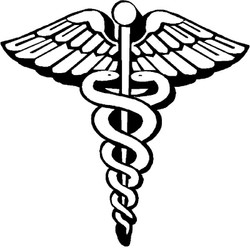Since 2014, the major medical plans include the provisions of the new health care reform. This results in major changes that could affect you - that cover the plans and how they are structured, the types of financial assistance available for some buyers of health insurance and tax implications for those who do not comply with the Affordable Care Act (ACA).

How Does the Health Care Reform Affect You?
by healthtalk
Since 2014, the major medical plans include the provisions of the new health care reform. Understand how these changes affect you.
 |
Individual mandate
To understand how the health care reform can affect your situation, it is important to know whether or not you are exempt from the individual mandate. This part of the law says that individuals should have coverage by a health insurance plan that meets the basic and minimum standards. However, if you are exempt from the individual mandate, then there is no risk of a penalty, whether you buy a plan that meets the minimum essential coverage or not.
The exemption of the individual mandate is calculated based on whether the lowest cost rate for health coverage is more than 8% of your annual household income. If so, it is likely that you will be exempt from the individual mandate. Other exemptions include those related to religious reasons, incarceration status or membership in an American Indian tribe.
 |
Financial assistance
There are two types of grants will be available to some consumers who purchase qualified health plans across state and federal exchanges. "An advanced premium tax credit" that can help reduce the cost of the premium of your health insurance. It is available for people who are between 100% and 400% of the Federal Poverty Level (FPL).
A subsidy that reduces the amount of shared costs (expenses like deductibles, coinsurance, and copayments) on Silver level plans. This grant is available only to those at or below 250% of federal poverty level, American Indians and Alaska Natives. You should check if you qualify for a subsidy.
 |
Potential tax penalties
(only apply to those who are not exempt from the individual mandate)
If you are not exempt from the individual mandate then you may be subject to a tax penalty, if you do not buy a plan that meets the minimum essential coverage requirements.
In 2014, the penalty for people is the greater of $95 per person ($285 for a family), or 1 percent of income. In 2016, to a maximum of $695 per person ($ 2.085 for a family) or 2.5% of revenue is raised. See if a penalty can be applied to your situation.
 |
Preventive services
The preventive services recommended by the Affordable Care Act are paid at 100% when doctors within the network are used, additional preventive services paid subject to deductible and coinsurance. This can vary by state.
 |
How does the Health Reform affect medical plans?
Major health insurance: these plans meet the essential requirements of coverage. Since 2014, these plans offer greater benefits, have limited spending on your own money (there are no questions of the history of health) and cover pre-existing conditions.
Fixed benefit insurance: these plans serve no essential requirement. They may be subject to a penalty, depending on your income level and cost of plans available.
Supplemental insurance (dental, accident and critical illness plans): These plans offer additional benefits and do not meet minimum essential coverage requirements.
You might also like
US Healthcare Through the Eyes of a BritonHealth care insurance or Medicaid dictates the level of medical treatment ava...
Health Reform Is Law; How Will It Affect Your TaxesThere's lots to know about Obamacare when it comes to your taxes. Here are so...



 Why is Cooking with Coconut Oil Healthy?on 02/17/2017
Why is Cooking with Coconut Oil Healthy?on 02/17/2017
 An Overview of a Low Calorie Dieton 03/30/2016
An Overview of a Low Calorie Dieton 03/30/2016
 3 Warning Signs that Women Must Take into Accounton 11/14/2015
3 Warning Signs that Women Must Take into Accounton 11/14/2015
 Top 5 Foods Most Harmful For Your Heart Healthon 03/11/2015
Top 5 Foods Most Harmful For Your Heart Healthon 03/11/2015


Comments